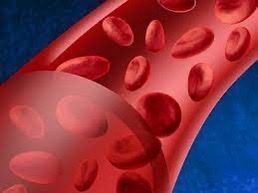Table of Contents
Naturopath for blood disorders

As a naturopath, I have seen firsthand how naturopathy benefits patients suffering from a variety of blood disorders.
One of my patients Anne had this to say
“I commenced seeing Leah a few months ago as suffering from anemia – constantly tired, been to GP and Spec. After blood tests just monitoring. Leah has prescribed an herbal tonic which has seen my blood levels improve and more importantly I feel better.”
Continue to read Google review
Anemia:
There are several types of Anemia, each with its own underlying causes and unique characteristics.
- Iron-deficiency anemia is the most common type, caused by insufficient iron levels necessary for red blood cell production.
- Vitamin deficiency anemia occurs when vitamins are deficient such as vitamin B12 or folate, affecting red blood cell production.
- Hemolytic anemia arises when red blood cells are prematurely destroyed, reducing lifespan.
- Sickle cell anemia is an inherited condition where red blood cells become abnormally shaped and prone to getting trapped in blood vessels.
- Aplastic anemia is a rare form characterised by the failure of bone marrow to produce enough red blood cells, white blood cells, and platelets.
Thrombocytopenia:
Thrombocytopenia is a condition where there is a low level of platelets in the blood, which can lead to excessive bleeding.
Hemophilia:
Hemophilia is a genetic disorder that affects the body’s ability to clot blood.
Leukemia:
Leukemia is a type of cancer that affects the blood and bone marrow. A naturopath may work alongside conventional medical treatments to provide supportive care and help reduce side effects.
Naturopath Treatment list
Nutritional support
Supportive lifestyle programs
-
Dietary Changes: A naturopath may recommend dietary modifications to improve blood health. This may include increasing the consumption of foods that are rich in iron, vitamin C and vitamin K.
-
Herbal Remedies: Various herbs are believed to have blood-strengthening properties. However, the specific herbs chosen will depend on the type and severity of the blood disorder.
-
Nutritional Supplements: Naturopaths may recommend certain supplements to support blood health. These may include iron supplements for iron-deficiency anemia, vitamin B12 supplements for pernicious anemia, and folate supplements for folate-deficiency anemia. Other supplements, such as vitamin C, vitamin K, and omega-3 fatty acids, may also be considered.
-
Lifestyle Modifications: Lifestyle factors play a significant role in blood health. Naturopaths may recommend regular exercise, stress reduction techniques, adequate sleep, and avoidance of tobacco and excessive alcohol consumption.
Telehealth Naturopath
Australia Wide
Naturopath and Nutritionist
Call now
contact
Common Causes of Low Iron
Heavy Periods
Heavy periods, medically known as menorrhagia, can be a significant contributor to iron and other blood dysfunctions in women. The excessive menstrual bleeding associated with this condition can lead to a gradual depletion of iron levels, resulting in iron deficiency anemia over time. When the body loses more blood than it can replace, the reduced iron levels can impair the production of hemoglobin, affecting the blood’s ability to carry oxygen efficiently. This, in turn, may lead to fatigue, weakness, and other symptoms associated with anemia.
Understanding the intricacies of menstrual health is paramount in the broader context of women’s health. Menstruation is a natural and essential aspect of a woman’s reproductive cycle, but when it becomes a source of significant health challenges, it demands attention. Exploring our comprehensive guide to women’s health provides a holistic perspective, allowing individuals to navigate various aspects of their well-being with informed choices and empowered decision-making.
For a deeper dive into the specifics of menstrual health and ways to manage heavy periods, we invite you to explore our dedicated page on periods. Here, you’ll find valuable insights, practical tips, and holistic approaches to promote menstrual wellness and address concerns such as menorrhagia. By fostering a greater understanding of women’s health issues, we aim to empower individuals to take proactive steps toward optimal well-being at every stage of life.